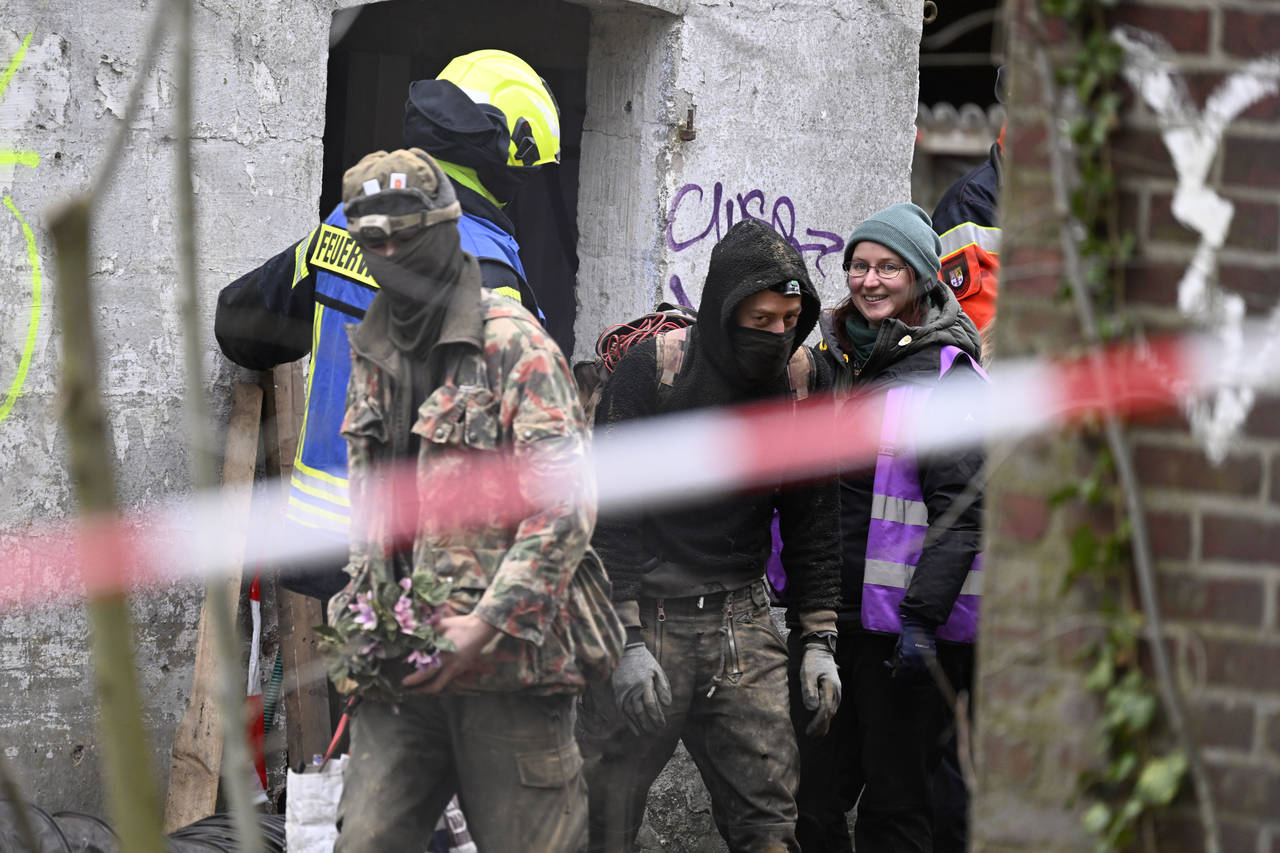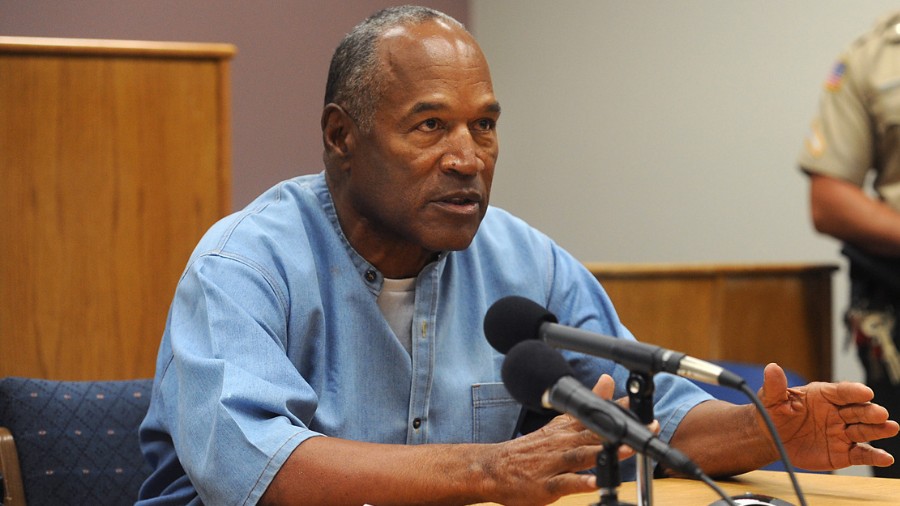Last activists leave hamlet at heart of German coal protest
Jan 15, 2023, 9:57 AM | Updated: Jan 16, 2023, 6:57 am

Five days after the eviction of Luetzerath began, two remaining climate activists leave an underground tunnel under a building in Luetzerath, Germany, Monday, Jan. 16, 2023. (Roberto Pfeil/dpa via AP)
(Roberto Pfeil/dpa via AP)
BERLIN (AP) — The last two climate activists holed up beneath a German village due to be destroyed for the expansion of a nearby coal mine left the site on Monday.
The activists — identified only by their nicknames “Pinky” and “Brain” — had remained inside a self-dug tunnel for days in a bid to prevent heavy equipment from being brought in to bulldoze the hamlet of Luetzerath, west of Cologne.
Meanwhile, anti-coal protests continued in the region, with eight activists chaining themselves to a giant digger at another nearby mine and others abseiling from a bridge to block access to Luetzerath. Both of those protests ended after several hours.
Activists have cited the symbolic importance of Luetzerath for years, and thousands of people demonstrated Saturday against the razing of the village by RWE energy company for the expansion of the Garzweiler coal mine.
Police and RWE began evicting activists Wednesday from Luetzerath, removing roadblocks, chopping down treehouses and bulldozing buildings. By Sunday, they said the operation had almost finished.
The government and RWE say the coal beneath Luetzerath is needed to ensure Germany’s energy supply in the coming years. Environmental campaigners and scientists dispute this and warn that burning tens of millions of tons of coal would undermine Germany’s climate goals.
Protesters accused police of using undue force during last week’s demonstration.
Luisa Neubauer, a prominent activist who attended the demonstration Saturday together with Greta Thunberg, said the police handling of the protest had been a “very shocking experience” for many.
Germany’s top security official, Interior Minister Nancy Faeser, said protesters who attacked officers would be prosecuted but claims of police violence would also be investigated. “If the allegations are confirmed then there must be consequences,” she said in a statement.
The battle over Luetzerath has caused rifts within the Green party, which is part of the national government and in the state where the mines are located.
Climate activist Neubauer, who is a member of the party, criticized its leadership for supporting an agreement resulting in the destruction of Luetzerath.
“I would expect that many, many people who were there and who protested with us voted Green,” she said, adding that the deal with energy company RWE “doesn’t have a robust scientific foundation.”
“To be honest, I don’t know whether the Green leadership is currently aware of what they’ve done,” Neubauer added.
Ricarda Lang, the party’s co-leader, defended the agreement with RWE, describing it as a compromise which had resulted in the deadline for coal extraction in western Germany being brought forward by eight years to 2030 and ensured that five other villages won’t be touched.
But she acknowledged the anger felt by some at the party’s grassroots. “As such we need both: those in government who make compromises, but also those who create pressure from outside.”
___
Follow AP’s coverage of the climate and environment at https://apnews.com/hub/climate-and-environment
Copyright © The Associated Press. All rights reserved. This material may not be published, broadcast, rewritten or redistributed.











